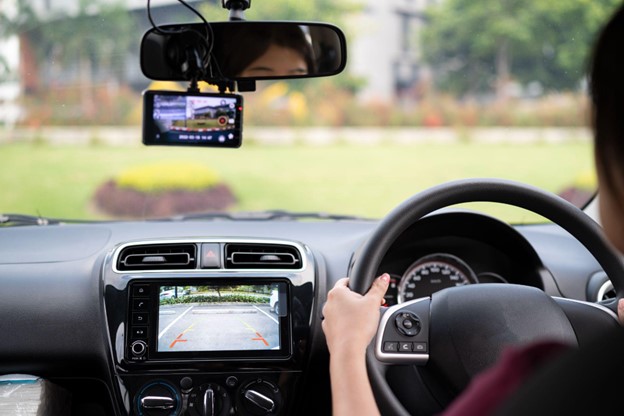In the realm of road safety and driving etiquette, the humble dash cam has emerged as a formidable tool. As the trend of dash cam usage continues to climb, we take a deep dive into understanding the importance and legal advantages that these devices bring. Whether you’re cruising along the vast Australian freeways or navigating bustling city intersections, dash cams offer an extra layer of security and legal protection. The subsequent sections will discuss in-depth about dash cams, their legal acceptability, the benefits during traffic incidents, their role in protecting from road crimes, and how to go about choosing the right one.
Understanding What a Dash Cam is and How it Works
A dash cam, also known as a dashboard camera, is a compact device installed inside the vehicle, often on the windscreen or dashboard. Their purpose is to continuously record the events happening on the road while you’re driving. Through this recording, a dash cam serves several fundamental functions – from capturing beautiful drives to presenting critical evidence in the event of legal disputes.
These devices usually start recording automatically when you turn on the ignition and save the footage onto an internal memory card. Dash cams come in various types, catering to diverse needs. Front view dash cams capture everything in front of your vehicle, rear view dash cams record what’s happening behind, and dual cams provide a comprehensive recording capturing both fronts and rear views. The arrival of newer, smarter dash cams has seen the inclusion of state-of-the-art features such as continuous looping where old footage is overwritten by new when the storage is full, automatic recording whenever the vehicle is in use, and night vision capabilities to ensure quality footage under dim lighting conditions.
Legal Acceptability of Dash Cam Footage
One of the most significant aspects of the legal implications of dash cams in Australia is the admissibility of dash cam footage in court. If clear, unambiguous and properly time-stamped, dash cam recordings can be crucial evidence during a legal process. However, it’s also essential to remember that the laws governing dash cam usage may vary from state to state. Therefore, being vigilant about the specific regulations in your locale is of paramount importance.
There are numerous real-life cases where dash cam footage has proved pivotal in the courtroom. For example, a 2015 hit-and-run case in Melbourne saw the resolution when the perpetrator was identified and later convicted using dash cam footage.
Dash Cam Benefits During Traffic Incidents
Accidents are unfortunate, but what’s more challenging is to prove your innocence when there’s no evidence. Here, dash cams come into play. With their footage, one can prove innocence and avert undeserved liability. Apart from proving innocence, having a dash cam can streamline the insurance claim process since insurance companies can rely on the objective footage rather than on inconsistent eyewitness accounts or conflicting statements. They are also useful to challenge unjust traffic violations based on hard facts rather than subjective human observations. Understanding their value, the presence of dash cams encourages drivers to behave responsibly, bringing positive changes to widespread driving behaviours.
Dash Cams As a Protection From Road Crimes
Dash cams are not just about capturing beautiful landscapes or recording accident footage; they serve a more significant purpose in preventing and documenting road criminal activities. If a vehicle is involved in a hit-and-run accident, the dash cam footage can provide valuable details about the incident, allowing the authorities to track down the offender. Similarly, in case of car theft, dash cam footage could provide important leads such as faces or other identifying features of the criminals. The very presence of a dash cam in a vehicle might deter potential car thieves or vandals, thus acting as a security measure.
Choosing the Right Dash Cam For Legal Protection
When considering a dash cam for your car, certain features are important. High-resolution recording is non-negotiable to ensure that the captured footage is clear and helpful legal-wise. The continuous loop feature is another must-have, allowing for non-stop recording. Dash cams with automatic recording that starts with the ignition is also critical, so you don’t have to worry about manually starting the device each time you start your drive. For extended driving sessions, a cam with a large storage capacity can capture longer footage.
Conclusion
To sum it up, having a dash cam in your vehicle is no longer a luxury but a necessity. From providing irrefutable evidence in event of a crash to deterring road crimes, the legal benefits of owning a dash cam are multifaceted. As their popularity increases, it’s essential to understand your local regulations about dash cam usage. As technology continues to advance, dash cams will only get better, further revolutionising road safety and legal protection, making them a worthy investment for every Australian motorist.

